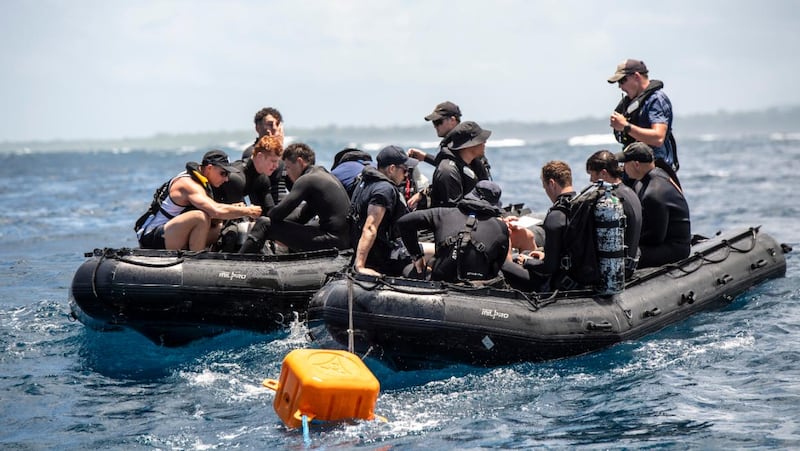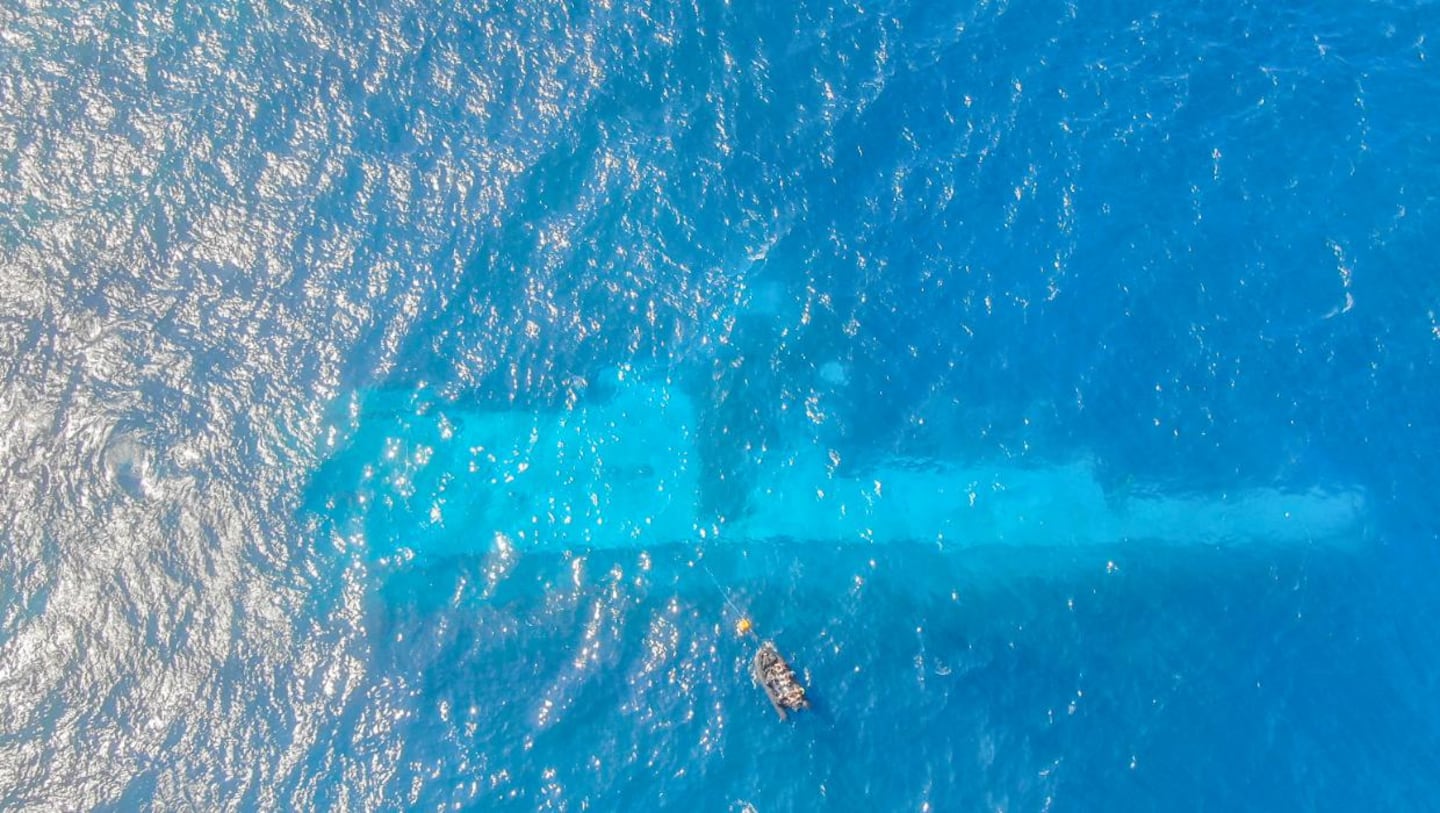This article was first published by Stuff.
Villagers are reporting fish smelling like oil after the sinking of Navy ship Manawanui on a Samoan reef, as preparations are made to bring one of three containers that fell off the ship ashore.
Preparations were under way to float, then tow three 10-foot (3-metre) containers from the reef to the shore, with the plan being to tow one of two empty containers to shore on the high tide later Saturday, NZDF said in update on Saturday afternoon.
“The first step in this operation is to secure float bags under the container to lift it, then tow the container to shore.
“Once it gets to shore, it is to be lifted onto a truck for safe transportation to a secure site for disposal.”
While two of the containers were empty, the third contained about 3 tonnes of food.
“They are moving with tides and swells and they pose an environmental risk,” NZDF said.
The work, which has been approved by Samoan government officials, was dependent on the weather and sea conditions and could take at least three days.
In a video update, NZDF senior national representative in Samoa, Commodore Andrew Brown, said weather permitting all three containers could be removed by Monday, but conditions needed to be right.
A fortnight after Manawanui sank on a reef, he thanked the people of Samoa for their patience.
“Our absolute priority remains to avoid, as much as possible, any impacts on Samoa’s marine and coastal environments, and the removal of these containers is an important step.”
Meanwhile senior matai (chief) of Vaiee village Tuia Paepae Letoa told The Guardian that fishers who went out to sea from Tuesday to Friday came back covered in a substance they suspected was oil.
The fish were slippery and smelled like oil.
“Anything from the sea is no longer safe for us, those fish have been taken in for investigation,” Letoa said.
“You can smell the diesel, they’ve destroyed our reef – I grew up on that reef all my life and they shouldn’t have hit it there, no way,” Manu Percival, a surf guide who helped with the rescue effort of the 75 crew and passengers from the Manawanui, told The Guardian.
“We are seeing before our eyes the full extent of the oil leak polluting our coast, our clam reserve is not safe, it’s affecting our village and this is likely going to be a long-term problem for us,” Tafitoala village representative Taloaileono Vasasou said.
Last Saturday, a week after the sinking, RNZ reported Samoa’s Marine Pollution Advisory Committee had said about 200,000 litres of diesel had leaked from Manawanui.

But on Q&A, Defence Minister Judith Collins said she didn’t see how that much could have leaked.
Video from the wreck, showed a “trickle” of oil, which NZDF had said was coming from pipes from the engine room, and certainly not from the large diesel tanks, Collins said.
The trickle was being dispersed out to sea because it was on the ocean side of the reef.
NZDF was working with a surveyor sent by the insurers to look at how the fuel tanks could be emptied out, “and then to do what they can on salvage”.
In a separate development, British Navy ship Tamar found the Manawanui’s navigation record book, which would likely be important evidence for a Court of Inquiry into the sinking.
The Tamar’s crew had been searching for items from the wreck and monitoring oil pollution.
- Stuff

